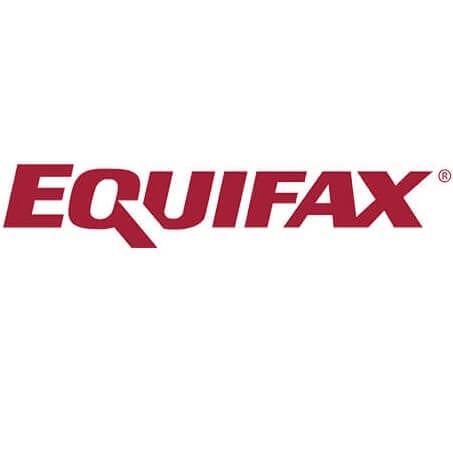This is part of a series of columns about how to protect important information and people in your life against fraud and scams. Stay tuned for more.
Last year, Jeff Brown, head of commercial solutions at Equifax Canada, saw a surge in digitally enabled scams in the construction industry. Criminals claiming to be a legitimate contractor would order supplies that could not be easily identified, such as lumber or plumbing parts, for delivery to a supposed job site — only there was no job site, and the orders were a scam. By the time the real contractor knew what was happening, the materials had been sold on the black market and the fraudsters had cleared out.
“Business-to-business relationships tend to operate on net payment terms. What that means is you can have products delivered to a non-standard location and those products don’t have to be paid to the supplier for 30 days,” says Brown. “That buffer can operate as a getaway window for scammers.”
Having worked a few times, the scam spreads. “When scammers see something they’re able to take advantage of, they double down and it becomes a trend that eventually can become a systemic issue,” says Brown.
Why small companies are attractive targets for fraud
Small businesses like contractors have particular attributes that can make them appealing targets for fraudsters, including:
They deal in bigger numbers than most consumers do. “The average working capital loan for a small business is around $40,000,” says Brown. Small business owners are often unaware of their credit standing and may not be keeping track of their company’s credit reporting. Business credit information is more readily available than personal credit information because it is less subject to privacy laws and businesses often want to demonstrate greater transparency to encourage others to work with them. “Businesses have to be spending money to make money. There needs to be an open network for businesses to be able to function,” Brown says. By looking at a company’s credit reports, fraudsters can find a company’s typical bank balance and who their largest suppliers are, for example. Businesses usually have more points of egress than consumer accounts for criminals to attack. They can go through or impersonate not just the owner(s) but employees, too. “Businesses have a larger net of potential liabilities,” Brown says.Red flags for Canadian businesses to watch out for
It’s hard to predict what form the next wave of small-business scams will take. Fraud constantly evolves and the tools that fraudsters use change often. Artificial intelligence (AI) has made the rapid collection and analysis of company information more accessible, while spoofing (creating fake) company images and videos can make it harder to spot what is real versus what is fake. Still, there are red flags for company owners and employees to watch out for:
Emails from organizations you don’t normally do business with, or emails that use unfamiliar or misspelled domain names. Communications demanding quick approvals. Callers saying they spoke to a named boss or colleague who approved a transaction that needs to be finalized. “A fraudster can easily obtain company managers’ names and titles online,” Brown notes. Any offer that sounds too good to be true, and those with suspicious attachments, should be approached with caution.Larger businesses include anti-fraud protocols in their onboarding and ongoing training, something that small businesses can’t always offer. But it helps if employees are trusted and empowered to use their own common sense around potential threats.
Equifax Complete Protection
Equifax Complete Protection is a credit and cybersecurity protection service designed to help Canadians spot the signs of identity fraud faster.
Provides daily credit monitoring and alerts Scans for your personal data on the dark web Social media monitoring by industry leader ZeroFoxSubscription price: $34.95 per month
Keep an eye on your credit reports
One line of defence is to frequently check your company’s credit profile. It’s not as simple as a consumer credit report; it isn’t boiled down to a single score. Instead, it includes a business failure risk score that tells suppliers and financial institutions whether or not a company is a viable partner. It also has a delinquency score that relates to the company’s history of paying bills on time, in full, or not at all.
Business credit reports will also enumerate a company’s financial obligations. “If you see a transaction you do not recognize on your company’s credit report, you can investigate and potentially dispute it. Conversely, if there are any long-time business relationships not indicated on the report, it may be in your interest to add them,” says Brown. “If you’ve had a relationship with a business for 10 years, having that history of good payments is going to help get you the best rates possible and the best products,” Brown says.
What if your business has been defrauded?
From the fraudster’s perspective, the beauty of the construction scam is that it’s not readily apparent who is liable: the company whose name was used, the supplier, or the financial institution conducting the transaction. While the parties sort that out, the criminals get away.
That’s why it’s important to take steps as soon as possible if you think your business may have been defrauded, including:
Checking your company’s credit report to see if an unauthorized transaction has taken place Contacting the other parties to the transaction as soon as you notice anything strange Reporting it to your local police and the Canadian Anti-Fraud Centre.This article is sponsored.
This is a paid post that is informative but also may feature a client’s product or service. These posts are written, edited and produced by MoneySense with assigned freelancers.
Get free MoneySense financial tips, news & advice in your inbox.
Read more about fraud and scams:
Watch: 5 questions on identity theft How to protect yourself from identity fraud in Canada Beware of CRA phone scam How to protect your devices against identity theft 7 ways to protect yourself from ID theftThe post How to protect your small business from fraud appeared first on MoneySense.














 Bengali (Bangladesh) ·
Bengali (Bangladesh) ·  English (United States) ·
English (United States) ·